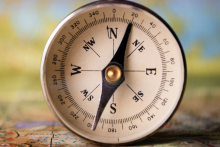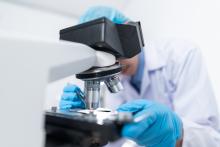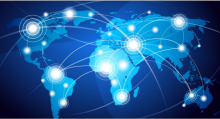Course description
Course organisation
Call for tenders
Annexes to the call for tenders
General contents
The doctoral course in Education, Development and Learning Sciences promotes the acquisition of theoretical, experimental and methodological skills necessary to design and carry out highly qualified research activities in the areas of pedagogical, psychological and human-social sciences, at universities, public or private bodies, in educational and training institutions, in production organizations, in Italy or abroad, and capable of providing significant development of knowledge, also in reference to some crucial areas such as those related to permanent transition, in the plurality of life and work contexts. The course has an interdisciplinary nature and an international vocation. The main object of investigation of research training is human development and its educability, explored from different theoretical, empirical and methodological perspectives mainly attributable to two disciplinary areas: pedagogical and psychological, without neglecting the contribution of other disciplines pertaining to the human-social, scientific and technological areas. Particular attention will be paid to the themes of social cohesion and inclusion as a strategy to combat the multiple forms of discrimination and marginalization, with particular attention to disability, social fragility and gender discrimination; to the themes of work pedagogy and organizational psychology, in order to support research paths capable of innovating career management skills and empowerment useful for dealing with the continuous and rapid change of educational and training institutions, public administrations and businesses; to the development of innovative technological tools (with particular attention to the field of artificial intelligence) for entrepreneurial development, from the perspective of environmental and social sustainability. The training plan makes use of the multidisciplinary skills of the professors of the Doctoral College and of numerous international collaborations, promoting innovative research and practice also through a rich and articulated comparison. This wealth of contributions allows us to generate the skills necessary to govern the complexity of the contemporary world that involves educational and training institutions, universities, personal care services, public and private bodies and the production system. The aim of the course is therefore to develop research skills that can read and interpret complexity through the ability to make universal values and individual dimensions, plurality of knowledge and new knowledge interact, which also know how to promote respect for individual rights (with particular attention to the gender dimension) and the ethics of care in the perspective of inclusion and social cohesion, with a particular focus on supporting intellectual and economic growth,social and cultural development of Southern Italy. The skills acquired will be usable in the field of basic research and applied research in different contexts: - in schools, training and universities where specific interventions can be carried out in the field of teaching and advanced university skills, as well as in the strengthening of training and professional orientation activities, also in order to fill some territorial gaps; - in personal care and assistance services, in social enterprises, in the contexts of socio-cultural policies where processes of social inclusion can be promoted with reference to differences in gender, age, culture, psycho-physical condition; - in companies, research centers, in the Public Administration, where interventions can be made to strengthen organizational-managerial skills in support of environmental sustainability and sustainable development, equal opportunities, inclusion of disabled people; - in companies that deal with e-learning, media education, edutainment.
Learning objectives
General objectives of the course are:
- ensure a solid theoretical and practical preparation, in order to acquire adequate knowledge of the most advanced theories, methodologies and technologies specific to the disciplines related to the pedagogical and psychological fields as well as, more generally, to those of the human-social sciences;
- ensure a high-quality training in pedagogical and psychological research useful for developing interventions in different contexts (from education and training systems to personal care services, from businesses to public administrations, etc.) that compensate for that gap in scientific talent that contributes to marking a delay of Italy compared to the performance of other countries and, specifically of Italy, of the South compared to the rest of the country;
- promote the acquisition of skills transversal to the different research areas, transferable to the different contexts of research and work of high qualification;
- acquire the ability to design educational actions generative of new forms of coexistence and social justice aimed at countering exclusion in the different phenomenologies in which it can manifest itself;
- promote the acquisition of skills related to digital and media technologies;
- promote management, leadership and social skills. and effective communication;
- support linguistic and IT improvement;
- ensure a fruitful connection between the world of research and the public and private production and service system;
- create an international network of researchers to develop skills in fund raising activities through the establishment of scientifically competitive partnerships;
- promote the valorisation of research results and guarantee the protection of intellectual property, ensuring open access to the public to research results and related data (for example, publications of original scientific research results, raw data and metadata, sources, digital graphic and image representations and scientific multimedia materials) in the shortest time and with the least possible number of limitations, according to the "Open science" and "FAIR Data" principles, in order to support the digital and ecological transition processes.
Educational activities
Expected teachings
- Ethics and Methodology of Research in Education
- Ethics and methodology of research on development and learning
- Complexity Society and Organizational System
- Media technologies, AI, e-learning
- Expert professionals in the field of education
- Expert professionals in the field of development and learning
- Theories, practices and contexts of education and care throughout the life course
- Statistics for Psycho-Pedagogical Sciences
Other educational activities
- Linguistic improvement
- Computer improvement
- Management of research and knowledge of European and international research systems
- Valorisation and dissemination of results, intellectual property and open access to research data and products
- Core principles of ethics, gender equality and integrity
- Seminars
- Laboratory activities
Admission requirements
All Master's Degrees
Job and professional opportunities
At the end of the course, the PhD students will be able to develop research projects independently, coordinate data collection by integrating methods specific to pedagogical and psychological sciences in reference to the sciences of training, development and learning; evaluate the results, propose technological innovations for scientific and professional purposes, work in multidisciplinary teams.
PhDs will be able to continue their training in their respective areas of professional specialization as well as acquire expertise functional to new professional figures capable of merging knowledge relating to bio-psychic development with learning and training processes, capitalizing on the connections between cognition, emotion, instruction and education.
The skills acquired will facilitate professional integration:
- in the third sector of the social economy, services for the care and assistance of people (health companies, socio-educational and health services in the area, RSA, non-profit associations), including scientific ones (IRCCS);
- in educational and training institutions, universities and research centers; - in companies, in order to strengthen the processes of corporate innovation and organizational well-being;
- in industries that develop educational software and digital learning environments and software for rehabilitation and neuropsychological enhancement;
- in various areas of the private and public sector: in particular in the area of Human Resources, promoting team building activities and corporate training (more levels, from managers to employees);
- in the area of Personal Support Services, strengthening psycho-pedagogical training and training in personal and organizational well-being, essential elements for the learning and productivity of work groups, from the perspective of the learning organization.
These are public and private sectors in which the presence of highly skilled researchers will be able to guarantee a profitable connection between the world of research and the public and private production and service systems, contributing significantly to supporting the formation of a new work culture and a new way of thinking/acting professionally and, more generally, a new "culture of innovation".
Curricula with educational activities
- Pedagogy and Educational Sciences
The curriculum of Pedagogy and Educational Sciences is declined on the side of pedagogical and didactic research in relation to biopsychic, social and cultural human development and to the contexts of education and care of the person throughout the course of life. A specific focus is in fact reserved for the problems of training understood as a dynamic and continuous process in the perspective of lifelong and life wide learning; of lifelong education understood as a socio-culturally situated field of practice; of educational practices and teaching methodologies functional to promote processes of social inclusion and intercultural integration; of formal, informal and non-formal contexts of education, instruction and training: school, university, family, peer group, workplaces, spaces of political, social, cultural, religious participation; of the training of professionals of training, education and care in school, university and extra-scholastic, professional, entrepreneurial contexts etc. - Psychology and Developmental and Learning Sciences
The curriculum of Psychology and Developmental and Learning Sciences is focused on psychological research on learning, with specific reference to the issues of learning difficulties and disorders, emotional and motivational aspects of learning, the effects on learning of conditions of socioeconomic and cultural disadvantage and conditions of minority bilingualism. Particular attention will be paid to the study of the effects of emergency events on learning, as well as to variables related to the school, family and business context and their impact on the cognitive, affective and relational components of learning, through a comparison between neurophysiological and behavioral patterns.







